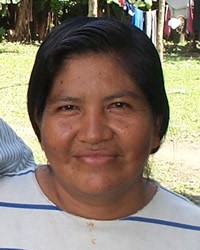The Yuracare people are an indigenous group native to central Bolivia, primarily residing along the Chapare, Ichilo, and Sécure rivers in the departments of Cochabamba and Beni. Their language, Yuracare (also called Yurújare), is a language isolate, meaning it is not known to be related to any other language family. Historically, the Yuracare were semi-nomadic, moving through the Amazonian lowlands and Andean foothills in search of fertile land and resources. Their oral traditions and ecological knowledge have been passed down through generations, forming the backbone of their cultural identity. Despite centuries of external pressures, including colonization and development, the Yuracare have maintained a distinct social organization rooted in communal living and forest stewardship.
The Yuracare live in small, forest-based communities where subsistence activities such as fishing, hunting, and swidden agriculture are central to daily life. They cultivate crops such as bananas, cassava, and maize and rely heavily on the rainforest's biodiversity for food, medicine, and materials. Traditional crafts, storytelling, and ceremonies remain vital aspects of their culture. However, their way of life is increasingly threatened by deforestation, illegal logging, and infrastructure projects that encroach on their ancestral lands. Despite these challenges, the Yuracare continue to demonstrate resilience through community-led conservation efforts and cultural revival programs that blend traditional knowledge with modern education.
The Yuracare practice animism, a spiritual worldview in which natural elements such as rivers, animals, and trees are believed to possess spiritual essence. Their cosmology is deeply tied to the forest, and rituals often involve offerings to nature spirits and ancestral beings. While some Yuracare have been exposed to Christianity through missionary efforts, traditional beliefs remain dominant, especially in remote communities. Spiritual practices are closely linked to seasonal cycles, ecological stewardship, and oral transmission of sacred stories.
Educational programs that incorporate the Yuracare language and cultural knowledge are essential for preserving their identity and empowering youth. Improved access to healthcare services is critical, particularly in isolated communities where preventable diseases and maternal health issues are common. Legal protection of their land rights is urgently needed to safeguard their territories from environmental degradation and external exploitation.
Pray that the Yuracare people would encounter the love of Christ in ways that affirm their cultural heritage and spiritual understanding.
Ask God to raise up indigenous leaders who can share the gospel with wisdom and humility, bridging traditional beliefs and biblical truth.
Pray for protection over Yuracare lands and for healing in communities affected by ecological destruction and social marginalization.
Lift up efforts to translate Scripture and Christian resources into the Yuracare language, and for churches to become places of unity, hope, and transformation.
Scripture Prayers for the Yuracare in Bolivia.
PeopleGroups.org – Yuracare
Wikipedia – Yuracaré Language
Intercontinental Cry – Guardians of Bolivia's Tropical Forests
Postposm – Yuracaré Culture
| Profile Source: Joshua Project |










